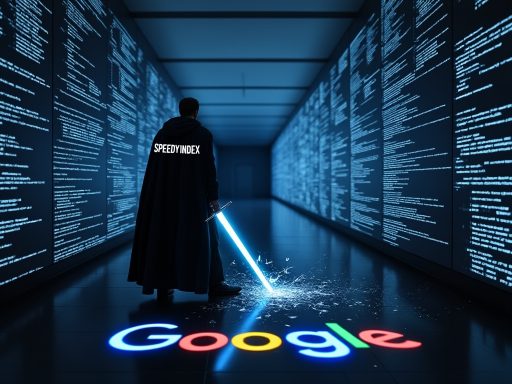In the world of search engine optimization (SEO), backlink indexing is a pivotal component that influences a website’s visibility and authority in search engine results. As search engines like Google refine their algorithms, understanding the intricacies of backlink indexing becomes essential for digital marketers and website owners.
This article delves into the nuances of backlink indexing, exploring its definition, significance, and the factors impacting it. We will also discuss practical strategies to ensure successful indexing, common challenges, and best practices for maintaining a sustainable backlink profile.
Additionally, we’ll explore future trends in backlink indexing and share insights to enhance your SEO efforts, with a touch of humor to lighten the complexity of waiting for indexing!
Understanding Backlinks
- Definition: Backlinks, also known as inbound or incoming links, are hyperlinks from one website to another. They act as digital endorsements, signaling to search engines the relevance and authority of a web page.
- Importance: High-quality backlinks from reputable websites serve as endorsements, boosting a site’s trustworthiness and likelihood of ranking higher in search engine results pages (SERPs).
The Role of Backlinks in SEO
- Influence on Rankings: Backlinks are indicators of a website’s credibility. They contribute to the PageRank algorithm, helping Google determine the importance of web pages.
- Discovery of New Content: Search engine bots use backlinks to discover and index new pages, enhancing a site’s visibility and searchability.
Here are three quotes from Google representatives about the importance of links:
- Matt Cutts, Former Head of Google’s Webspam Team: «Links are still a very important signal, and they will continue to be a very important signal… The quality of the links is more important than the quantity of the links.» (Source: Search Engine Land)
- John Mueller, Google Webmaster Trends Analyst: «Links are a very important signal for us, and they will continue to be a very important signal… We use links to understand the relevance and authority of a page.» (Source: Google Webmaster Central Blog)
- Gary Illyes, Google Webmaster Trends Analyst: «Links are a very important signal for us, and they will continue to be a very important signal… We use links to understand the relevance and authority of a page, and to help us rank pages in search results.» (Source: Google Webmaster Central Blog)
Types of Backlinks
- DoFollow: Pass link equity, directly influencing search rankings.
- NoFollow: Do not pass link equity but contribute to a natural link profile.
- UGC and Sponsored Links: User-Generated Content and paid links, respectively, require proper tagging to comply with guidelines.
Effective Backlink Indexing Strategies
- Use Google Search Console: Submit URLs for prompt indexing.
- Build High-Quality Backlinks: Focus on reputable sources.
- Leverage Social Media: Generate social signals to speed up indexing.
- Implement Schema Markup: Helps search engines understand your content better.
Tools and Services
- SpeedyIndex: Tired of waiting for Google to notice your new page? SpeedyIndex accelerates indexing, reducing the suspense of waiting like it’s an Oscar announcement!
Common Challenges in Backlink Indexing
- Low-Quality Linking Sites: Links from untrustworthy sites might not be indexed.
- Duplicate Content: Avoid duplicating content to ensure backlinks are indexed.
- Technical Errors: Fix broken links and optimize your robots.txt file.
Links that Google values the most
Google values backlinks with high authority and relevance. In particular, backlinks from sites with .edu and .gov extensions are considered especially valuable. This is because these sites typically have high authority and relevance in their field.
Backlinks from .edu sites
Backlinks from .edu sites are especially valuable to Google because they come from educational institutions and have high authority in their field. These links can be especially useful for sites that provide educational content or services.
Backlinks from .gov sites
Backlinks from .gov sites are also highly valued by Google because they come from government agencies and have high authority in their field. These links can be especially useful for sites that provide government-related information or services.
Other types of backlinks
In addition to backlinks from .edu and .gov, Google also values backlinks from other authoritative sites such as news outlets, blogs, and other high authority websites. However, it’s important to remember that the quality of backlinks is more important than the quantity.
Table: Factors Affecting Backlink Indexing
| Factor | Description |
|---|---|
| Quality of Linking Site | High-authority sites enhance indexing likelihood. |
| Relevance of Content | Relevant content improves indexing chances. |
| Domain Authority | High DA sites are favored for backlink indexing. |
| Technical Soundness | Proper site structure and no crawl errors facilitate indexing. |
Jokes about Indexing Delays
- Why did the SEO expert cross the road? To get a backlink from the other side!
- Waiting for Google to index your site is like waiting for your plants to grow—patience is key, but a little SpeedyIndex helps!
Future Trends in Backlink Indexing
- AI and Machine Learning: These technologies will enhance the efficiency of indexing processes.
- Voice Search: Content formats will adapt to cater to voice-activated search queries.
Успешная индексация беклинков играет важную роль в достижении успеха в SEO. By focusing on high-quality content, ethical link-building, and proactive strategies, businesses can improve rankings and visibility. Stay informed about the latest trends to maintain a competitive edge in the digital landscape.
Reference
For more on backlink strategies, visit Moz.








